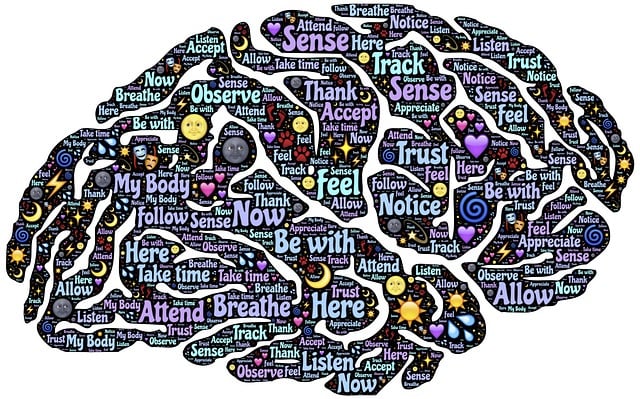Englewood Dissociative Disorder Therapy (EDDT) is a specialized mental wellness approach, addressing global dissociative disorders often misunderstood. This therapy equips individuals with coping mechanisms through evidence-based practices like CBT and mindfulness, improving stress management and mood stabilization. The growing mental wellness app market caters to diverse users, including those managing EDDT, driven by increasing awareness of mental health and digital therapeutics. An ideal app provides a full spectrum of tools for holistic well-being, integrating EDDT techniques, interactive mood tracking, coping mechanism exercises, secure communication, educational resources, and risk management strategies. Development involves extensive research, intuitive design, coding essential components, rigorous testing, feedback loops, and ongoing updates based on user feedback and emerging research.
Mental wellness apps are gaining traction as powerful tools for managing and improving psychological well-being. In this article, we explore the development of such applications, focusing on Englewood Dissociative Disorder Therapy as a case study. We analyze the growing market need, targeting specific audiences like those dealing with dissociative disorders. Key features for an effective app are outlined, followed by insights into the development process, emphasizing the importance of creating therapeutic digital solutions that cater to diverse mental health challenges.
- Understanding Mental Health Challenges: Englewood Dissociative Disorder Therapy
- Market Need and Target Audience for Wellness Apps
- Key Features of an Effective Mental Wellness App
- Development Process: Building a Therapeutic Digital Tool
Understanding Mental Health Challenges: Englewood Dissociative Disorder Therapy

Understanding Mental Health Challenges: Englewood Dissociative Disorder Therapy plays a pivotal role in addressing complex psychological issues, such as dissociative disorders, which affect a significant portion of the global population. Dissociation, a common yet often misunderstood phenomenon, can lead to severe emotional distress and impairment in daily functioning.
Englewood Dissociative Disorder Therapy focuses on empowering individuals to manage their symptoms and improve overall mental wellness. This therapeutic approach involves specialized techniques tailored to help patients understand and regulate their dissociative experiences. By incorporating evidence-based practices, such as cognitive behavioral therapy (CBT) and mindfulness strategies, the app fosters the development of coping skills for stress management and mood stabilization. Through engaging and interactive features, users can gain insights into their emotional states, fostering a sense of control and empowerment in navigating their mental health journey.
Market Need and Target Audience for Wellness Apps

The market need for mental wellness apps is growing as more individuals seek accessible and convenient ways to support their psychological well-being. These digital tools cater to a diverse range of users, from those managing chronic conditions like Englewood Dissociative Disorder Therapy (EDDT) to folks interested in cultivating better self-care practices. According to recent studies, the global mental health app market is expected to reach significant heights, driven by increased awareness about mental health and the growing acceptance of digital therapeutics.
The target audience for wellness apps is broad and encompasses individuals with specific mental health conditions, general users looking for stress management techniques, and even those enrolled in Mental Health Education Programs Design. Apps catering to EDDT, for instance, offer specialized therapies and coping strategies tailored to address the unique challenges of dissociative disorders. Furthermore, risk assessment tools for mental health professionals can be integrated into these apps to monitor user progress and provide timely interventions, ensuring a holistic approach to mental wellness.
Key Features of an Effective Mental Wellness App

An effective mental wellness app should offer a comprehensive suite of features tailored to support users’ holistic mental well-being. Key among these is Englewood Dissociative Disorder Therapy, which can help users manage conditions like dissociation by providing structured, evidence-based interventions. Such apps often incorporate interactive tools for tracking moods, anxiety levels, and triggers, enabling self-awareness and early intervention.
Additionally, they should facilitate Resilience Building through exercises designed to enhance coping mechanisms and stress resilience. Effective mental wellness apps also emphasize Communication Strategies, integrating features that allow users to connect with therapists, support groups, or loved ones securely. These platforms can further empower users by offering educational resources on mental health topics, risk management planning for mental health professionals, and strategies for navigating challenging situations.
Development Process: Building a Therapeutic Digital Tool

The development process of a mental wellness app, particularly one focusing on therapeutic interventions like Englewood Dissociative Disorder Therapy, involves several key steps. It starts with thorough research to understand the specific needs and challenges faced by individuals dealing with dissociative disorders. This phase is crucial for designing effective features that cater to evidence-based practices, such as cognitive behavioural therapy (CBT) techniques. The app’s interface should be intuitive, accessible, and user-friendly, ensuring a positive experience for users who may be navigating their mental health journey for the first time.
Once the design is finalized, development teams can begin coding and integrating various components like mood tracking, mindfulness exercises, and educational resources tailored to dissociative disorder management. Regular testing and feedback loops are essential to identify and rectify bugs or usability issues early on. Moreover, privacy and security measures must be implemented rigorously to protect sensitive user data. As the app gains traction, ongoing updates based on user feedback and emerging research in mental wellness can enhance its effectiveness, ensuring it remains a valuable tool in the digital landscape of mental health support, complementing initiatives like Mental Wellness Podcast Series Production, Stress Management Workshops Organization, and Mental Illness Stigma Reduction Efforts.
The development of mental wellness apps, as exemplified by innovative approaches like Englewood Dissociative Disorder Therapy, is a game-changer in addressing growing mental health challenges. By understanding the unique needs of diverse audiences and incorporating evidence-based features, these apps can provide accessible, personalized support. The development process involves careful consideration of therapeutic effectiveness, user experience, and data security, paving the way for enhanced well-being and improved access to care in the digital age.












